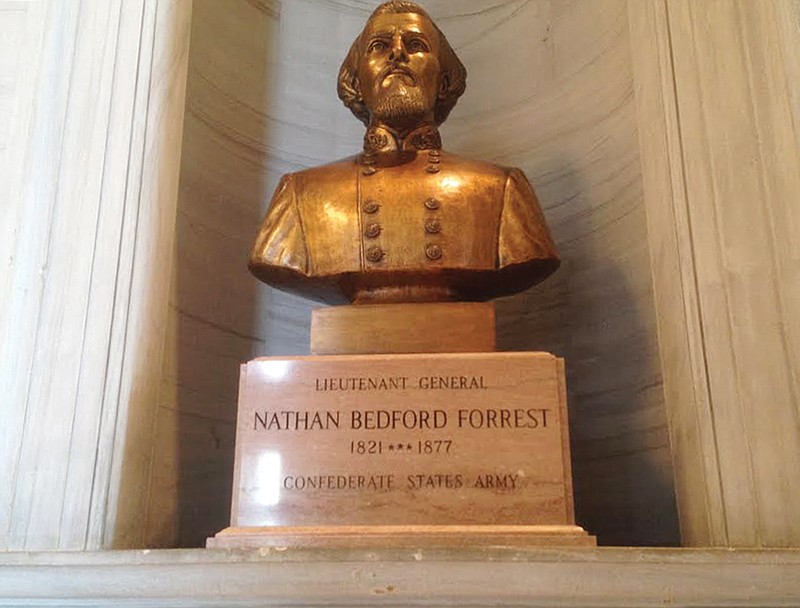NASHVILLE -- A controversial bill making it harder for Tennessee Historical Commission members to approve removal of monuments honoring figures like Confederate Gen. Nathan Bedford Forrest sparked heated debate today between white House Republicans, who pushed the measure, and black Democrats who opposed it.
The bill's sponsor, Rep. Steve McDaniel, R-Lexington, a white Civil War buff and battle reenactor, said the bill is an update to his 2013 Tennessee Heritage Act, which sought to put the brakes on cities and counties' ability to remove monuments or change names of streets and parks.
"History is history," McDaniel, the deputy House speaker, told the chamber. "When we look back at certain historical events, we see it with a different perspective today. So for us to necessarily want to change what someone put in place to memorialize someone, we can't judge that as they did."
McDaniel's original 2013 Heritage Protection Act only required a majority decision by the Tennessee Historical Society for approving contested changes. His update, black lawmakers charged, lifts the bar so high that it makes removing any statute or monument or implementing name changes virtually impossible.
Rep. Johnny Shaw, who is black, told colleagues that while history is history, "a criminal act is a criminal act.
"We are really endorsing some criminal acts that took place long ago when people had no other choice but to stand and watch," Shaw said. "But this is a new day and a new time. This is like putting a statute of Hitler in a Jewish community."
Last year, McDaniel's 2013 law took on new significance following the murder of nine members of a historically black church in Charleston, S.C. Police charged an avowed white supremacist who confessed to the shootings, saying he wanted to trigger a race war.
That resulted in House Majority Leader Gerald McCormick, R-Chattanooga, calling for the removal of the Forrest bust that lawmakers pass by on their way to the House chamber. Forrest, a Tennessee native, was considered a brilliant military tactician but his past as a slave trader and ties to the Ku Klux Klan have long been controversial.
Rep. Jeremy Faison, R-Cosby, who is white, told colleagues that "tyrants" ranging from Adolf Hitler to Joseph Stalin to Pol Pot try to erase history when they take power.
"We're not trying to preserve racism" through such monuments, Faison said. "We're trying to preserve the history that we grew from, the history that we learn from, the history that I will tell my children what took place and what brought America to become the greatest nation in the world.
"I want you to remember the most evil people in the world got rid of all the historical facts and wanted to rewrite the history. The men and women of freedom learn from what happened in the past and they look forward to the future because they know where we came from and where we're going," Faison added.
Democrats were irate when majority Republicans moved to cut off debate.
"You just never get straight answers on these questions," later charged House Democratic Caucus Chairman Mike Stewart, a white Nashville lawmaker who didn't get a chance to speak on the bill.
He said a "small minority" of Historical Commission members would be allowed to "block" action. "And then allows any group, and we can only imagine what these groups might be, to come in and file a lawsuit to challenge the commission's ruling."
"The whole purpose is to gum up the works and make it virtually certain that a small minority of people can make it impossible to decide whether we should have a bust of Nathan Bedford Forrest," Stewart said.
